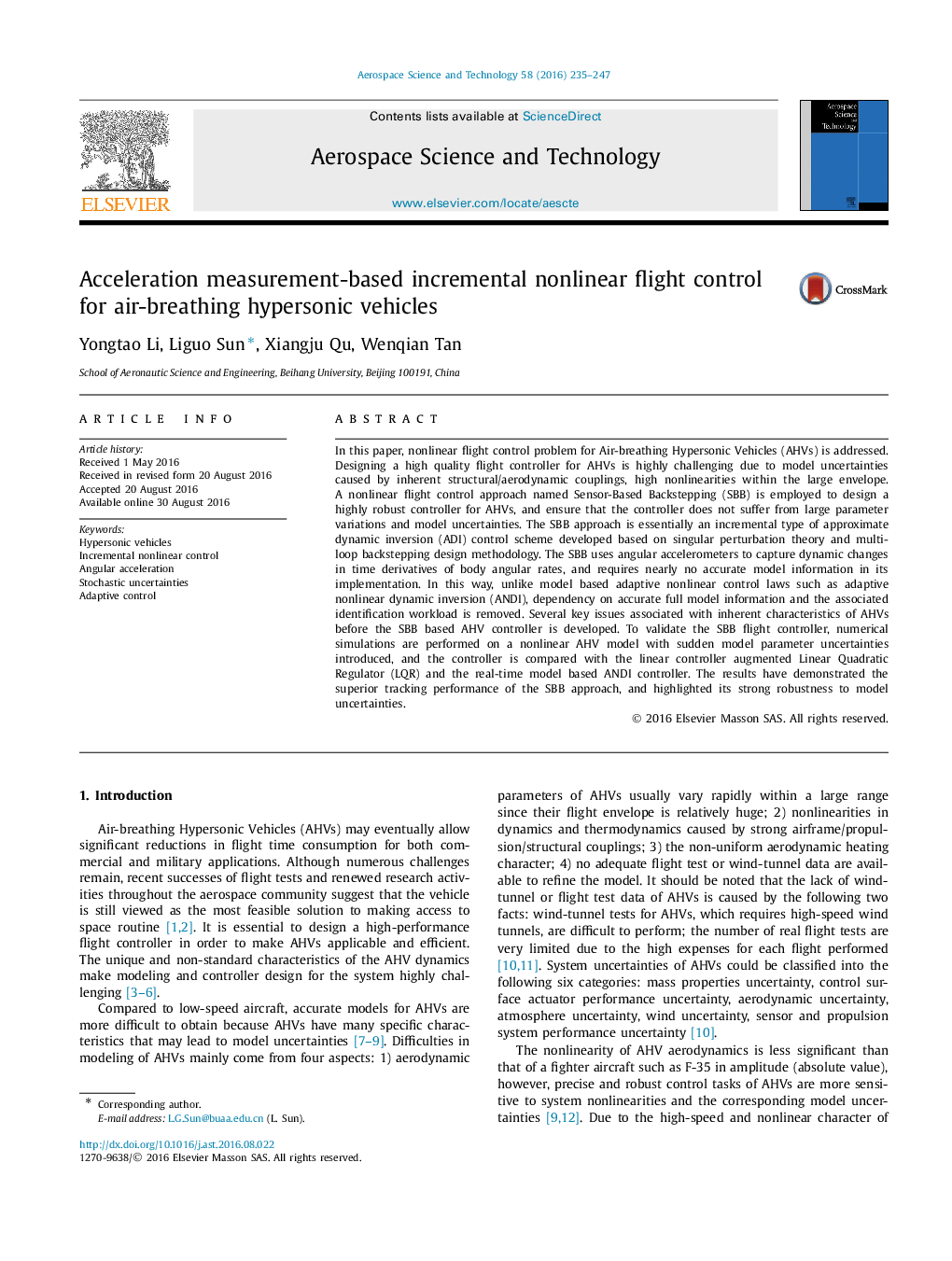| Article ID | Journal | Published Year | Pages | File Type |
|---|---|---|---|---|
| 8058445 | Aerospace Science and Technology | 2016 | 13 Pages |
Abstract
In this paper, nonlinear flight control problem for Air-breathing Hypersonic Vehicles (AHVs) is addressed. Designing a high quality flight controller for AHVs is highly challenging due to model uncertainties caused by inherent structural/aerodynamic couplings, high nonlinearities within the large envelope. A nonlinear flight control approach named Sensor-Based Backstepping (SBB) is employed to design a highly robust controller for AHVs, and ensure that the controller does not suffer from large parameter variations and model uncertainties. The SBB approach is essentially an incremental type of approximate dynamic inversion (ADI) control scheme developed based on singular perturbation theory and multi-loop backstepping design methodology. The SBB uses angular accelerometers to capture dynamic changes in time derivatives of body angular rates, and requires nearly no accurate model information in its implementation. In this way, unlike model based adaptive nonlinear control laws such as adaptive nonlinear dynamic inversion (ANDI), dependency on accurate full model information and the associated identification workload is removed. Several key issues associated with inherent characteristics of AHVs before the SBB based AHV controller is developed. To validate the SBB flight controller, numerical simulations are performed on a nonlinear AHV model with sudden model parameter uncertainties introduced, and the controller is compared with the linear controller augmented Linear Quadratic Regulator (LQR) and the real-time model based ANDI controller. The results have demonstrated the superior tracking performance of the SBB approach, and highlighted its strong robustness to model uncertainties.
Related Topics
Physical Sciences and Engineering
Engineering
Aerospace Engineering
Authors
Yongtao Li, Liguo Sun, Xiangju Qu, Wenqian Tan,
